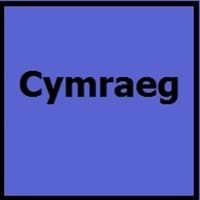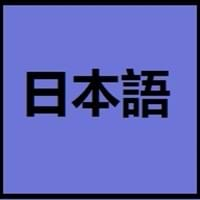Welsh and Japanese
National Language
Wales
Japan
Second Language
Not spoken in any of the countries
Not spoken in any of the countries
Speaking Continents
Europe
Asia, Pacific
Minority Language
Argentina, United Kingdom
Palau
Regulated By
Welsh Language Commissioner
Agency for Cultural Affairs (文化庁) at the Ministry of Education
Interesting Facts
- One of the Celtic language still spoken with great numbers of speakers is Welsh language.
- Welsh was evolved from British , which was spoken by ancient Britons.
- In Japanese Language, there are 4 different ways to address people: kun, chan, san and sama.
- There are many words in Japanese language which end with vowel letter, which determines the structure and rhythm of Japanese.
Similar To
English Language
Korean Language
Derived From
British Language
Not Available
Alphabets in
Welsh-Alphabets.jpg#200
Japanese-Alphabets.jpg#200
Writing Direction
Not Available
Left-To-Right, Horizontal, Top-To-Bottom
Hello
Helô
こんにちは (Kon'nichiwa)
Thank You
Diolch
ありがとう (Arigatō)
How Are You?
Sut ydych chi?
お元気ですか (O genki desu ka?)
Good Night
Nos da
おやすみなさい (Oyasuminasai)
Good Evening
Noswaith dda
こんばんは (Konbanwa)
Good Afternoon
P'nawn da
こんにちは (Konnichiwa!)
Good Morning
Bore da
おはよう (Ohayō)
Please
os gwelwch yn dda
お願いします (Onegaishimasu)
Sorry
Mae'n ddrwg gennym
ごめんなさい (Gomen'nasai)
Bye
Hwyl
さようなら (Sayōnara)
I Love You
Dw i'n dy garu di
愛しています (Aishiteimasu)
Excuse Me
Esgusodwch fi
すみません (Sumimasen)
Dialect 1
Patagonian Welsh
Sanuki
Where They Speak
Argentina
Kagawa
Dialect 2
Y Wyndodeg
Hakata
Where They Speak
Gwynedd
Fukuoka
Dialect 3
Y Bowyseg
Kansai
Where They Speak
Powys
kansai
Speaking Population
Not Available
Native Name
Cymraeg / Y Gymraeg
日本語
Alternative Names
Cymraeg
Not Available
French Name
gallois
japonais
German Name
Kymrisch
Japanisch
Pronunciation
[kəmˈrɑːɨɡ]
/nihoɴɡo/: [nihõŋɡo], [nihõŋŋo]
Ethnicity
Welsh people
Japanese (Yamato)
Language Family
Indo-European Family
Japonic Family
Subgroup
Celtic
Not Available
Branch
Brythonic
Not Available
Early Forms
Common Brittonic, Old Welsh, Middle Welsh
Old Japanese, Early Middle Japanese, Late Middle Japanese and Early Modern Japanese
Standard Forms
Welsh
Japanese
Language Position
Not Available
Signed Forms
Not Available
Signed Japanese
Scope
Individual
Individual
ISO 639 6
Not Available
Not Available
Glottocode
wels1247
nucl1643
Linguasphere
50-ABA
45-CAA-a
Language Type
Historical
Living
Language Linguistic Typology
Verb-Subject-Object
Subject-Object-Verb
Language Morphological Typology
Fusional
Agglutinative, Synthetic
All Welsh and Japanese Dialects
Most languages have dialects where each dialect differ from other dialect with respect to grammar and vocabulary. Here you will get to know all Welsh and Japanese dialects. Various dialects of Welsh and Japanese language differ in their pronunciations and words. Dialects of Welsh are spoken in different Welsh Speaking Countries whereas Japanese Dialects are spoken in different Japanese speaking countries. Also the number of people speaking Welsh vs Japanese Dialects varies from few thousands to many millions. Some of the Welsh dialects include: Patagonian Welsh, Y Wyndodeg. Japanese dialects include: Sanuki , Hakata. Also learn about dialects in South American Languages and North American Languages.
Welsh and Japanese Speaking population
Welsh and Japanese speaking population is one of the factors based on which Welsh and Japanese languages can be compared. The total count of Welsh and Japanese Speaking population in percentage is also given. The percentage of people speaking Welsh language is Not Available whereas the percentage of people speaking Japanese language is 1.90 %. When we compare the speaking population of any two languages we get to know which of two languages is more popular. Find more details about how many people speak Welsh and Japanese on Welsh vs Japanese where you will get native speakers, speaking population in percentage and native names.
Welsh and Japanese Language Codes
Welsh and Japanese language codes are used in those applications where using language names are tedious. Welsh and Japanese Language Codes include all the international language codes, glottocodes and linguasphere.





